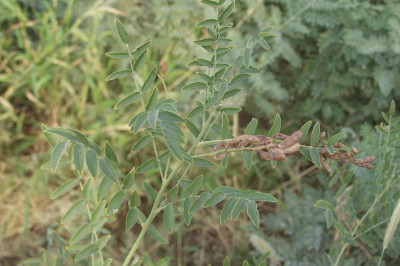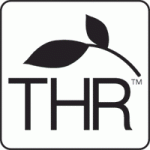Liquorice

Image kindly provided with permission from Botanist, Lin Yu-Lin, Institute of Medicinal Plant Development, Chinese Academy of Medical Science, Beijing
This tall erect member of the pea family of plants (Glycyrrhiza glabra) is cultivated mostly in Greece and Turkey. It is easily recognisable by its gracefully spreading rows of leaflets on either side of a central stalk and its dark green leaves that hang down at night. Long-stemmed spikes of numerous bluish-purple to white flowers grow from the leaf axils from June to August followed by small leguminous, smooth-skinned seedpods.
The roots are brown, long and cylindrical and contain glycyrrhizin, the secret to liquorice’s medicinal powers. Liquorice is also a source of many other well-documented beneficial substances including phytoestrogens and flavonoids.
History of Use
There is nothing new about the health-giving properties of liquorice. In ancient Greece it was used to calm coughs and soothe upset stomachs, the ancient Egyptians prepared a liquorice drink to honour the spirit of the Pharaohs and Dioscorides writing in the 4th century BC describes it as having ‘the property of quenching thirst if one holds it in the mouth’. He also gave the plant its botanical name Glycyrrhiza glabra (glucos is the Greek for sweet and riza means root).
Meanwhile, in Traditional Chinese herbal medicine liquorice is known as the ‘great detoxifier’ or ‘great harmoniser’ and is thought to help drive toxins from the system.
Did You Know?
Liquorice is the sweetest substance known on earth. It is more than 50 times as sweet as sugar!

Since April 2014, all herbal medicines for sale in the UK and Europe must be approved by the Medicines & Healthcare Products Regulatory Agency (MHRA) having been rigorously checked for safety and quality. They must also display the Traditional Herbal Registration ‘THR’ logo on their pack.
Registered herbal medicines containing liquorice are used today to relieve symptoms of upper respiratory tract infections such as the common cold based on traditional use only.
The following products contain Liquorice
Bronchoforce Chesty Cough Ivy Complex Oral Drops
Bronchoforce is a traditional herbal medicinal product used to relieve chesty coughs, mucus coughs and catarrh. Based on traditional use only. Read more
